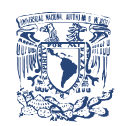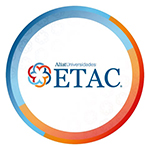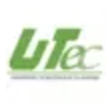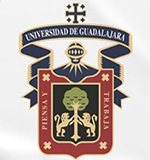Introduction to the Autonomous University of San Luis Potosí, Mexico:
Introduction: The Autonomous University of San Luis Potosí is an important public university in Mexico. It is located in the state of San Luis Potosí. It is the largest, oldest and most comprehensive university in the state, and also plays an important role in Mexico.
Overview: The school has a well-organized structure with 15 faculties, 1 college, 4 coordinating agencies, 1 department, 7 institutes and 12 research centers. It offers a wide range of undergraduate and graduate courses, with 99 undergraduate programs and 88 graduate programs, and more than 32,000 students.
History and founding time: Its history can be traced back to 1624, when it was a Jesuit college that taught literacy, middle school and high school courses. In 1825, under the promotion of the governor, the Guadalupe-Josefino College was established, offering majors in humanities, philosophy, theology, law, etc. Six years later, medical majors were added. In 1855, the college was closed due to political unrest and the expulsion of the Jesuits. In 1859, the school reopened and was renamed the San Luis Potosí Institute of Science and Letters. On January 10, 1923, Governor Rafael Nieto issued Decree No. 106, establishing the University of San Luis Potosí, which at the time included faculties such as medicine, law, chemistry and business, and gained autonomy. In 1949, in accordance with Article 100 of the Constitution of the State of San Luis Potosí, the school was renamed to its current name - the Autonomous University of San Luis Potosí.
School Strength: The school has a highly qualified faculty and has outstanding performance in teaching and scientific research. The school conducts research activities in many fields and has extensive cooperation with domestic and foreign universities and institutions, providing students and teachers with international exchange opportunities, and enhancing the school's academic level and international influence.
Institutional Nature: A public non-profit university, supported and managed by the government, dedicated to cultivating talents for society and promoting regional education, culture and economic development.
Educational Philosophy: There is no clear and public content related to educational philosophy. However, as a public university, it usually aims to cultivate well-rounded talents, promote academic progress, and serve the society, focusing on students' knowledge learning, ability training, and comprehensive quality improvement.
Key laboratories and disciplines: No key laboratories are explicitly mentioned. In terms of disciplines, medicine, law, chemistry, engineering and other disciplines have a long history and have always occupied an important position in the development of the school. They may be the school's advantageous disciplines.
Faculties: Including the Faculty of Accounting and Administration, the Faculty of Agriculture and Veterinary Medicine, the Faculty of Chemistry, the Faculty of Communication, the Faculty of Economics, the Faculty of Engineering, the Faculty of Humanities and Social Sciences, the Faculty of Information Sciences, the Faculty of Law, the Faculty of Medicine, the Faculty of Nursing and Nutrition, the Faculty of Psychology, the Faculty of Science, the Faculty of Stomatology, the Faculty of Human Settlements and Environment (involving architecture, design, and architecture-related research), etc.
Ranking: Ranked 1401st in the 2024 QS World University Rankings.
Fees: The school's academic calendar is divided into two semesters, and tuition fees are calculated on an annual basis. Tuition fees for local students start at US$54 per year, and international students pay at least US$1,000 per year. The school has a financial aid program to provide tuition assistance to eligible students.
Campus environment: The campus is located in San Luis Potosí, a vibrant city that provides students with rich living and internship opportunities. There is a library on campus with scientific papers, textbooks, novels, etc. Students can communicate with people from different countries and nationalities through international exchange programs to broaden their horizons. The school also regularly organizes joint activities for local and foreign students.
-

National Autonomous University of Mexico
-

Anahuac University of North Mexico
-

Universidad ETAC
-

Universidad Autonoma de Guadalajara
-

Meritorious Autonomous University of Puebla
-

Technological University of Tulancingo
-

Technological University of Huejotzingo
-

Autonomous University of Sinaloa
-

Metropolitan Autonomous University
-

University of Guadalajara
-

Mesoamerican University
-

Istmo University
-

Mariano Galvez University of Guatemala
-

Regional University of Guatemala
-

Galileo University
-

Francisco Marroquín University
-

Rafael Landívar University
-

University of the Valley of Guatemala
-

University of San Carlos of Guatemala
-

Technological Institute of Tlaxcala Plateau
-

Golfo University
-

Technological University of South Sonora
-

Technological University of Huejotzingo
-

Tizimín Institute of Technology
-

Chilpancingo Institute of Technology

